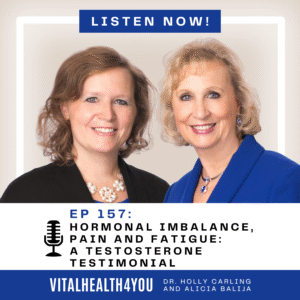Millions of articles have been written about weight loss and the health damage related to obesity. Most have a pop-a-pill approach or a few key suggestions – most of which involve eating less and exercising. I know of many people who eat like a bird and exercise like a maniac but can’t budge a pound. Why is that? It is because losing weight for most people is not a simple matter, it is complex.
There are numerous reasons why weight is gained in the first place, and that is the first place to start. It’s like your car breaking down and the mechanic goes to work fixing what he thinks caused it, without first asking you key questions and running a diagnostic on it. If the luck of the draw is on his side, he may be successful. It reminds me of a time when I was 20 and my car broke down on the freeway. I was able to coast down the off-ramp, right into a gas station at the end of it. Lucky me! Because it just stopped, we had no idea what happened. Well, he tested the alternator and it was bad and he replaced it. But he still couldn’t get the engine to turn over. Then he found something wrong with something else that could have caused it (can’t remember what it was now) and fixed that. Still the car wouldn’t start. After a week of trying to figure it out (this was pre-electronic and fancy diagnostics), it turned out I had run out of gas at about the same time. For all I knew, that was the only problem and I got taken for a ride!
Weight loss is no different. If we don’t take the time to figure out WHY you are gaining weight in the first place, all the starvation diets in the world won’t help. Or maybe they do for a while, but then when the weight goes back on again, it’s even more difficult to lose the next time, and the next and harder each subsequent time. So, let’s take a look at what could go wrong.
Hormones are an important key, but not the only one. Some of the key hormones responsible for weight gain are released in response to stress. Stress causes a surge of cortisol, which tells the body to store fat. Sugar also causes cortisol levels to rise. When cortisol rises, insulin falls and you start craving sweets or other carbs in response, further adding to the problem. High estrogen levels can also cause a rise in cortisol. Most of the time it isn’t our own estrogen, but estrogen-mimickers – toxic products such as the BPA’s found in plastic water bottles, pesticides, birth control pills, soy protein isolates, and others. Excess estrogen (referred to as “estrogen dominance”) creates excess fat.
Then there are the hunger hormones. Ghrelin is produced in your stomach and stimulates appetite. That in turn makes you eat about 30% more and promotes fat storage. It acts on the hypothalamus gland which controls appetite. There are several things you can do to control ghrelin such as getting enough sleep, avoiding sugar and MSG and not dieting! On the opposite end of the spectrum is Leptin. Leptin tells your brain you’ve eaten enough so that your appetite drops. Eating nutrient dense foods instead of empty calorie foods helps this hormone be your friend.
We are out of space and have only covered one of about 20 reasons why you gain weight and the complexity of losing weight. In Part II of The Complexity of Weight Loss, we will try to cover many of the other reasons.
The Complexity of Weight Loss, Part II
In Part I we discussed the complexity of gaining weight. Weight gain is rarely a simple matter of eating excessively and exercising insufficiently. There are many reasons why you gain weight in the first place. Rarely is there only one or two reasons. There are generally several reasons that all coalesce into a fat-storing machine that has no mercy! In Part I we started with the hormones cortisol, insulin, estrogen, ghrelin and leptin and how they contribute to weight loss or gain.
Digestion is an important key in keeping a normal waistline. Digestion is key to most diseases. If you have heart burn, reflux, bloating, ulcers, any kind of intestinal symptoms such as IBS, colitis, Crohn’s disease, and even constipation, it will be difficult for you to lose weight (unless it is so severe that you have the opposite problem!). All of these conditions are fixable, and unless and until they are fixed (I mean fixed, not just managed by medications), you will have a very difficult time getting your weight under control. Acupuncture, herbal medicine, and nutritional support are used together to help heal the gut. But don’t forget the friendly guys – the pre and pro-biotics! Eating fermented/cultured foods are a must in correcting any digestive condition.
Sleep is very important in losing weight. Since much of the weight loss occurs during sleep, with insufficient amounts, you will struggle to get on top of it. Acupuncture and the above referenced remedies is also helpful for getting back your restorative sleep cycle. They are also helpful if your autonomic nervous system is out of balance. That could be one reason for sleeplessness, but it has also been suggested that reduced activity in the sympathetic nervous system (the active side of the autonomic nervous system) could contribute to reduced fat burn. There are several things that control the balance between the sympathetic nervous system and parasympathetic nervous system – keys in losing weight.
Many diseases contribute to weight gain, and their medications frequently do as well. Any time you can opt to correct the problem and not just use medications to control it, could be helpful. That doesn’t mean to drop your medications that have a side effect of weight gain. That could be dangerous! But the best way to not have to take a weight-gaining medication is to no longer need it. That means you have to heal the condition. Many people mistakenly believe that what they have they are stuck with the rest of their lives. That is rarely true. In fact, I enjoy treating the more complex conditions because as we correct the underlying cause, not only does their main concern get corrected, but so do many other symptoms as well. Best yet, they get their life back!
Many, if not most, health conditions have inflammation as part of it. Just being inflamed can prevent you from losing weight. Once the inflammation is under control, weight can begin to drop.
The endocrine system – the system of mostly glands that control hormones – is instrumental in weight management. They thyroid controls the rate of your metabolism and energy, the hypothalamus controls appetite, the adrenal glands control blood sugar, anxiety (a frequent cause of emotional eating), inflammation and energy levels, and the pancreas also controls blood sugar. The sex hormones from the gonads and ovaries control fat storage, the liver controls digestion, detoxification, conjugation and dissemination of hormones and many other things responsible for proper weight control. All of these glands need to be balanced and happy for weight loss to occur.
©2018 Holly A. Carling, O.M.D., L.Ac., Ph.D.
Medical/Health Disclaimer:
The information provided in this article should not be construed as personal medical advice or instruction. No action should be taken based solely on the contents of this article. Readers should consult appropriate health professionals on any matter relating to their health and well-being. The information and opinions provided here are believed to be accurate and sound, based on the best judgment available to the author, but readers who fail to consult appropriate health authorities assume the risk of any injuries.







